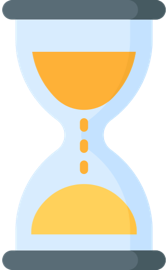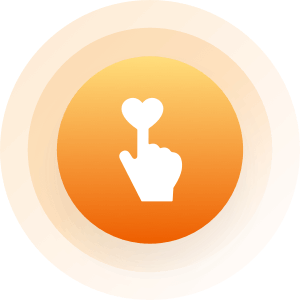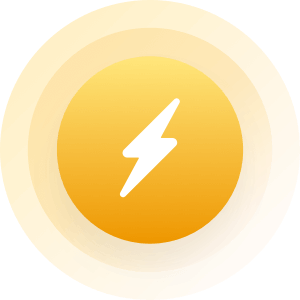Community > Posts By > redonkulous
|
I read a paper quite some time back that explained the math in terms of fractals. It was very simple. |
|
|
|
|
|
Edited by
redonkulous
on
Thu 06/03/10 03:50 PM
|
|
|
Cause over Life, Matter, Energy, Space and Time, subjective and objective. Works for me. 
|
|
|
|
|
|
Its a movie for laymen that completely misrepresents science, that in itself is enough to set off my despise meter and peg it out to max.
I tell you what, if I get home and just cant bring myself to log into my test server, I will watch it again and make some direct quotes that take philosophical opinion and paints it as scientific fact. |
|
|
|
|
|
yea I remember reading about these nasty little critters. Talk about reality being creepier than fiction . . . Ugh.
|
|
|
|
|
|
Oh how I wish I had access to youtube, Laurence Krauss one of my favorite physicists rips this movie to shreds.
Blather is my opinion in one word. Its new age mysticism wrapped up in confusing sounding physics jargon as it meets the cult of JZ Knight. |
|
|
|
|
|
Topic:
Acupuncture
|
|
|
|
|
|
Edited by
redonkulous
on
Mon 05/31/10 04:35 PM
|
|
|
I like Michio, he seems able to effortlessly navigate the transition between idea (fiction, or possible, but not known) and fact.
Science needs imagination more than ever, but it needs to be grounded in data, and always in the proper forum. His shows such as Sci-Fi Science is great becuase it allows an improvisational style of sci-fi imagination, but then tempers it with real physics. |
|
|
|
|
|
Edited by
redonkulous
on
Mon 05/31/10 03:03 PM
|
|
|
Excellent, yes, I will comment more fully later after reading his list of articles he cites as his resources.
I wonder if we can find a full video of that conference where Lawrence Krauss calls nonsense on the quantum word soup. |
|
|
|
|
|
Edited by
redonkulous
on
Sun 05/23/10 02:07 PM
|
|
|
" ... Descartes summed this up as. "I think there for I am" ... " ( ahem ... ) ... ' ... I think there for I am ... " ... ? "I think in a particular place for I am ... " ? What ... ? I'm sure you meant to say Descartes said "Cogito, ergo sum". In this case, it may be more precise to rearrange that to "Cogito cogito, ergo cogito sum." I'm just sayin', 'cuz the proper logical flow of argument is that existence is already assumed or pre-supposed in order for thinking to occur, not that existence is concluded from that thinking ... Descartes came at the topic from both positions to finally conclude that at least he existed. Most proper philosophers will do this in order to flush out an idea. |
|
|
|
|
|
Edited by
redonkulous
on
Sun 05/23/10 02:01 PM
|
|
|
Creativity is subjective.
Regarding the creativity of "technically oriented" people...
I work as a software engineer and most of my colleagues would be considered highly intelligent, orderly, business folks. I would challenge anyone to match the creativity of these folks against any artist. I am sorry its merely a subjective cultural construct where we label artistic pursuits as highly creative and practical pursuits as less creative. I have also been immersed in the artistic community, as an actor, a singer, and musician I have spent tons of time around artistic people and found that the vast majority of art is a hodge podge of previous concepts brought together with a spin that makes it appear new and unique, which is common to most human endeavors. Cutting edge technologically sophisticated companies house the worlds most elite creative minds; and in a day to day encounter most people would not go out of their way to label these people as creative. Cutting edge technology/science requires creativity in a way art never will. To be the first in a new revolutionary design/scientific-method is a challenge that requires hundreds and sometimes thousands of innovations to achieve. New cutting edge and highly creative art will tend to have at most a handful of new ideas. So I tend to think its a narrow view that holds the conclusions of the above mentioned research as poignant. I couldn't agree more. I too am a software engineer and in my 25 years experience in the field, the computer programmers I have known tend toward a high percentage of musicians. Of course that's just anecdotal evidence, and very possibly "confirmation biased" since I am an amateur musician myself. Well that's easy the whole idea is simplistic, or perhaps just a little too black and white for such a complex topic. We are all both right and left brained individuals. The connections between hemispheres is complete and fully function in the vast majority of adults. Modern research has highlighted that the associations between left and right do play a role in the technical mastery of a wide range of skills, however it has also debunked the oversimplification that is the right-left brain distinction of skill mastery. Whats interesting to me is that the cognitive structures found on the left and right side of the brain are somewhat different in some ways, but also flexible enough to be re-tasked in the case of TBI (traumatic brain injury). These structures are able to provide the same capabilities if they are able to remap the connections in such a way as to remodel the previous functionality, which also remodels the previous network of connections. Its all about topology, but left and right are far less important than which cognitive apparatus connects to what other cognitive apparatus. A great example of a person who does not have the connections between left and right brain via the corpus collosum is the person who inspired Rain man, Kim Peek. We can learn alot about the anatomy of the brain, its connections and how that alters the functionality of the brain via these kinds of examples. So in that regard I think this is a wonderful post, and the idea of left and right brained people has something to it, but its antiquated and oversimplified to a large degree and as our understanding of the brain grows we have learned to not place people into such simple groupings as left and right. |
|
|
|
|
|
Edited by
redonkulous
on
Sat 05/22/10 12:52 PM
|
|
|
Post removed by author.
|
|
|
|
|
|
Edited by
redonkulous
on
Sat 05/22/10 12:45 PM
|
|
|
3 words.
What is real? __________________________________________ Until a distinction can be made between real and not real nothing objective can be said about reality. Real Defined: Definitions of real on the Web:
* being or occurring in fact or actuality; having verified existence; not illusory; "real objects"; "real people; not ghosts"; "a film based on real ... * real(a): no less than what is stated; worthy of the name; "the real reason"; "real war"; "a real friend"; "a real woman"; "meat and potatoes--I call that a real meal"; "it's time he had a real job"; "it's no penny-ante job--he's making real money" * not to be taken lightly; "statistics demonstrate that poverty and unemployment are very real problems"; "to the man sleeping regularly in doorways homelessness is real" * capable of being treated as fact; "tangible evidence"; "his brief time as Prime Minister brought few real benefits to the poor" * actual: being or reflecting the essential or genuine character of something; "her actual motive"; "a literal solitude like a desert"- G.K.Chesterton; "a genuine dilemma" * of, relating to, or representing an amount that is corrected for inflation; "real prices"; "real income"; "real wages" * real number: any rational or irrational number * substantial: having substance or capable of being treated as fact; not imaginary; "the substantial world"; "a mere dream, neither substantial nor practical"; "most ponderous and substantial things"- Shakespeare So if an imaginary pink hippo is not real, but the relationships of neural traffic that represents the imaginary pink hippo is real then we start to achieve the needed distinction. Representational concepts have a real, and not real component. The real component is the medium that does the representing. What is actually represented is not real. So even if you are a solipsist in the sense of disregarding an external reality, you still must tackle the fact that your experience must be representational, and based in some medium that can store the interactions required for such experiences to exist. Descartes summed this up as. "I think there for I am" This does not define what it is to exist, just the fact that experience in any form requires a medium for such interactions of thought and some form of reality for that thought to engage with stimulus. 95% of what is stored in our minds is lies....the 'reality' of those who came before us. The domestication of humans..to fit into societies standards, or our parents expectations, or church leaders, or to please our teachers. Keep asking questions, keep seeking, even when your solar plexus hurts...especially when it hurts because that's when you'll know it's important. |
|
|
|
|
|
Edited by
redonkulous
on
Sat 05/22/10 12:26 PM
|
|
|
Creativity is subjective.
I work as a software engineer and most of my colleagues would be considered highly intelligent, orderly, business folks. I would challenge anyone to match the creativity of these folks against any artist. I am sorry its merely a subjective cultural construct where we label artistic pursuits as highly creative and practical pursuits as less creative. I have also been immersed in the artistic community, as an actor, a singer, and musician I have spent tons of time around artistic people and found that the vast majority of art is a hodge podge of previous concepts brought together with a spin that makes it appear new and unique, which is common to most human endeavors. Cutting edge technologically sophisticated companies house the worlds most elite creative minds; and in a day to day encounter most people would not go out of their way to label these people as creative. Cutting edge technology/science requires creativity in a way art never will. To be the first in a new revolutionary design/scientific-method is a challenge that requires hundreds and sometimes thousands of innovations to achieve. New cutting edge and highly creative art will tend to have at most a handful of new ideas. So I tend to think its a narrow view that holds the conclusions of the above mentioned research as poignant. |
|
|
|
|
|
Topic:
Borderlands
Edited by
redonkulous
on
Wed 05/19/10 06:53 AM
|
|
|
I noticed in a couple threads here more then a few people play Borderlands.
Id love to get together with some regulars. I am even down to start a new play through. My Current characters 61 Brick 50 Siren 30 Soldier The soldier I am only playing with a bud of mine when we get spare time which due to our schedules being off its rare, however I really love playing this game so shoot me a message if you feel like playing. On Xfire I am Xulld Same on Gameranger If you do not have an account on either of those, just respond here or send me an PM and we can connect. |
|
|
|
|
|
Topic:
BEST GAME EVER?!?!?!?!?
|
|
|
The best game ever is always the game im currently burning hours and hours on . .
This month that game is Boderlands. Its a FPS that mixes RPG, you have classes, talents trees, scaling loot with color codes for rarity, you have skills, and lots and lots of guns some 17 million combination's. Summed up in a single sentance, its a post apocalyptic halo like shooter with coop where you level like you do in MMORPG's such as WOW. Huge fun. |
|
|
|
|
|
Topic:
Dunning–Kruger effect
|
|
|
Because the more you learn, the more you realize that you will never know everything! |
|
|
|
|
|
Topic:
I love this Blog
Edited by
redonkulous
on
Fri 05/14/10 03:42 PM
|
|
|
Here is a particularly fun article on one of my favorite blogs, thought Id share.
http://scienceblogs.com/insolence/ ResearchBlogging.org "I don't want knowledge. I want certainty!" --David Bowie, from Law (Earthlings on Fire) If there's one universal trait among humans, it seems to be an unquenchable thirst for certainty. This should come as no surprise to those committed to science and rational thinking because there is a profound conflict between our human desire for certainty and the uncertainty of scientific knowledge. The reason is that the conclusions of science are always provisional. They are always subject to change based on new evidence. Although by no means the only reason, clearly this craving for certainty the human mind appears to demand is likely to be a major force that drives people into the arms of religion, even radical religions that have clearly irrational views, such as the idea that flying planes into large buildings and killing thousands of people is a one-way ticket to heaven. However, this craving for certainty isn't limited to religion. As anyone who accepts science as the basis of medical therapy knows, there's a lot of the same psychology going on in medicine as well. Although I'm not going to discuss this phenomenon primarily in the context of unscientific and pseudoscientific quackery in the "alternative" medicine world, I think it's instructive as an example. Much of quackery involves substituting the certainty of belief for the provisional nature of science. Examples, abound. Perhaps my favorite two examples include Hulda Clark, who attributed all cancer and serious disease to a common liver fluke, and Robert O. Young, who believes that virtually all disease is due to "excess acid." Time and time again, if you look carefully at "alt-med" concepts and the therapies that derive from those concepts, you find simplicity tarted up in complicated-sounding jargon. Homeopathy, for instance, is at its heart nothing more than sympathetic magic, with its concept of "like cures like," combined with the principle of contagion, with its concept that water somehow has a "memory" of the therapeutic substances with which it's come in contact but can somehow manage, as Tim Minchin so hilariously put it, forget all the poo it's been in contact with. Reiki and other "energy healing" modalities can be summed up as "wishing makes it so," with "intent" having the power to manipulate some fantastical life energy to heal people. It's faith healing, pure and simple. The simplicity of these concepts at their core makes them stubbornly resistant to evidence. Indeed, when scientific evidence meets a strong belief, the evidence usually loses. In some cases, it does more than just lose; the scientific evidence only hardens the position of believers. We see this very commonly in the anti-vaccine movement, where the more evidence is presented against a vaccine-autism link, seemingly the more deeply anti-vaccine activists dig their heels in to resist, cherry picking and twisting evidence, launching ad hominem attacks on their foes, and moving the goalposts faster than science can kick the evidence through the uprights. The same is true for any number of pseudoscientific beliefs. We see it all the time in quackery, where even failure of the tumor to shrink in response can lead patients to conclude that the tumor, although still there, just can't hurt them. 9/11 Truthers, creationists, Holocaust deniers, moon hoaxers, they all engage in the same sort of desperate resistance to science. They're not alone, though. Even those who in general accept science-based medicine can be prone to the same tendency to dismiss evidence that conflicts with their beliefs. About three weeks ago, I saw an article by Christie Aschwanden discussing just this problem. The article was entitled Convincing the Public to Accept New Medical Guidelines, and I feel it could almost have been written by Orac, only minus Orac's inimitable and obligatory "insolence" and snark. To set up its point that persuading people to accept the results of new medical science is exceedingly difficult, the article starts with the example of long distance runners who believe that taking ibuprofen (or "vitamin I") before a long run reduces their pain and inflammation resulting from the run: They call it "vitamin I." Among runners of ultra-long-distance races, ibuprofen use is so common that when scientist David Nieman tried to study the drug's use at the Western States Endurance Run in California's Sierra Nevada mountains he could hardly find participants willing to run the grueling 100-mile race without it. Nieman, director of the Human Performance Lab at Appalachian State University, eventually did recruit the subjects he needed for the study, comparing pain and inflammation in runners who took ibuprofen during the race with those who didn't, and the results were unequivocal. Ibuprofen failed to reduce muscle pain or soreness, and blood tests revealed that ibuprofen takers actually experienced greater levels of inflammation than those who eschewed the drug. "There is absolutely no reason for runners to be using ibuprofen," Nieman says. The following year, Nieman returned to the Western States race and presented his findings to runners. Afterward, he asked whether his study results would change their habits. The answer was a resounding no. "They really, really think it's helping," Nieman says. "Even in the face of data showing that it doesn't help, they still use it." As is pointed out, this is no anomaly. Aschwanden uses as another example a topic that's become a favorite of mine over the last six months or so since the USPSTF released revised guidelines for mammographic screening. Take a look at what she says about the reaction: This recommendation, along with the call for mammograms in women age 50 and older to be done every two years, rather than annually, seemed like a radical change to many observers. Oncologist Marisa C. Weiss, founder of Breastcancer.org, called the guidelines "a huge step backwards." If the new guidelines are adopted, "Countless American women may die needlessly from breast cancer," the American College of Radiology said. "We got letters saying we have blood on our hands," says Barbara Brenner, a breast cancer survivor and executive director of the San Francisco advocacy group Breast Cancer Action, which joined several other advocacy groups in backing the new recommendations. Brenner says the new guidelines strike a reasonable balance between mammography's risks and benefits. I discussed the guidelines and the reactions to them myself multiple times. Let's put it this way. I'm in the business, so to speak, and even I was shocked at the vehement reaction from not just patients and patient advocacy groups, but my very own colleagues. I was particularly disgusted by the reaction of the American College of Radiology, which was nothing more than blatant fear mongering that intentionally frightened women into thinking that the new guidelines would lead to their deaths from breast cancer. Radiologists dug foxholes from which to protect their turf. Even some of my colleagues were very resistant to the guideline, and in fact I was in the distinct minority at my own institution in cautiously supporting the new guidelines--with some misgivings. At least I managed to be a moderating force to keep the press release we ended up releasing from being too critical of the new guidelines. As much as we'd like to pretend otherwise, even science-based medical practitioners can fall prey to craving the certainty of known and accepted guidelines over the uncertainty of the new. And if it's so hard to get physicians to accept new guidelines and new science, imaging how hard it is to get patients to accept them. There is abundant evidence of how humans defend their views against evidence that would contradict them, and it's not just observational evidence that you or I see every day. Scientists often fall prey to what University of California, Berkeley, social psychologist Robert J. MacCoun calls the "truth wins" assumption. This assumption, stated simply, is that when the truth is correctly stated it will be universally recognized. Those of us who make it one of our major activities to combat pseudoscience know, of course, that the truth doesn't always win. Heck, I'm not even sure it wins a majority of the time--or even close to a majority of the time. The problem is that the "truth" often runs into a buzzsaw known as a phenomenon that philosophers call naive realism. This phenomenon, boiled down to its essence is the belief that whatever one believes, one believes it simply because it's true. In the service of naive realism, we all construct mental models that help us make sense of the world. When the "truth wins" assumption meets naive realism, guess what usually wins? At the risk of misusing the word, I'll just point out that the truth is that we all filter everything we learn through structure of our own beliefs and the mental models we construct to support those beliefs. I like to think of science as a powerful means of penetrating the structure of those mental models, but that's probably not a good analogy. That's because, for science to work at changing our preconceptions, we have to have the validity of science already strongly incorporated into the structure of our own mental models. If it's not, then science is more likely to bounce harmlessly off of the force field our beliefs create to repel it. (Yes, I'm a geek.) As a result, when people see studies that confirm their beliefs, they tend to view them as unbiased and well-designed, while if a study's conclusions contradict a person's beliefs that person is likely to see the study as biased or poorly done. As MacCoun puts it, "If a researcher produces a finding that confirms what I already believe, then of course it's correct. Conversely, when we encounter a finding we don't like, we have a need to explain it away." There's also another strategy that people use to dismiss science that doesn't conform to their beliefs. I hadn't thought of this one before, but it seems obvious in retrospect after I encountered a recent study that suggested it. That mechanism is to start to lose faith in science itself as a means of making sense of nature and the world. The study was by Geoffrey D. Munro of Towson University in Maryland and appeared in the Journal of Applied Social Psychology under the title of The Scientific Impotence Excuse: Discounting Belief-Threatening Scientific Abstracts. There were two main hypotheses and two studies included within this overall study. Basically, the hypothesis was that encountering evidence that conflicts with one's beliefs system would tend to make the subject move toward a belief that science can't study the hypothesis under consideration, a hypothesis known as the "scientific impotence" hypothesis or method. In essence, science is dismissed as "impotent" to study the issue where belief conflicts with evidence. In addition: The scientific impotence method of discounting scientific research that disconfirms a belief is certainly worrisome to scientists who tout the importance of objectivity. Even more worrisome, however, is the possibility that scientific impotence discounting might generalize beyond a specific topic to which a person has strong beliefs. In other words, once a person engages in the scientific impotence discounting process, does this erode the belief that scientific methods can answer any question? From the standpoint of the theory of cognitive dissonance (Festinger, 1957), the answer to this question could very well be "Yes." And: Using the scientific impotence excuse for one and only one topic as a result of exposure to belief-disconfirming information about that topic might put the individual at risk for having to acknowledge that the system of beliefs is somewhat biased and possibly hypocritical. Thus, to avoid this negative self-view, the person might arrive at the more consistent--and seemingly less biased--argument that science is impotent to address a variety of topics, one of which happens to be the topic in question. To test these hypotheses, basically Munro had a group of students recruited for his study read various abstracts (created by investigators) that confirmed or challenged their beliefs regarding homosexuality and whether homosexuality predisposes to mental illness. It turned out that those who read belief-challenging abstracts were more prone to use the scientific impotence excuse, while those who read belief-confirming abstracts were not less likely to subscribe to the scientific impotence excuse. Controls that substituted other terms for "homosexual" demonstrated that it was the belief-confirming nature of the abstracts that was associated with use of the scientific impotence excuse. A second study followed up and examined more subjects. The methodology was the same as the first study, except that there were additional measures performed to see if exposure to belief-disconfirming abstracts was associated with generalization of belief in scientific impotence. In essence, Munro found that, relative to those reading belief-confirming evidence, participants reading belief-disconfirming evidence indicated more belief that the topic could not be studied scientifically and more belief that a series of other unrelated topics also could not be studied scientifically. He concluded that being presented with belief-disconfirming scientific evidence may lead to an erosion of belief in the efficacy of scientific methods, also noting: A number of scientific issues (e.g., global warming, evolution, stem-cell research) have extended beyond the scientific laboratories and academic journals and into the cultural consciousness. Because of their divisive and politicized nature, scientific conclusions that might inform these issues are often met with resistance by partisans on one side or the other. That is, when one has strong beliefs about such topics, scientific conclusions that are inconsistent with the beliefs may have no impact in altering those beliefs. In fact, scientific conclusions that are inconsistent with strong beliefs may even reduce one's confidence in the scientific process more generally. Thus, in addition to the ongoing focus on creating and improving techniques that would improve understanding of the scientific process among schoolchildren, college students, and the general population, some attention should also be given to understanding how misconceptions about science are the result of belief-resistance processes and developing techniques that might short-circuit these processes. On a strictly anecdotal level, I've seen this time and time again in the alt-med movement. A particularly good example is homeopathy. How many times have we seen homeopaths, when confronted with scientific evidence finding that their magic water is no more effective at anything than a placebo, claiming that their magic can't be evaluated by randomized, double-blind clinical trials (RCTs). The excuses are legion: RCTs are too regimented; they don't take into account the "individualization" of homeopathic treatment; unblinded "pragmatic" trials are better; or anecdotal evidence trumps RCT evidence. Believers in alt-med then often generalize this scientific impotence discounting to many other areas of woo, claiming, for example, that science can't adequately measure that magical mystical life energy field known as qi or even, most incredibly, that subjecting their woo to science will guarantee it to fail. Unfortunately, when science is discounted this way, it allows believers in pseudoscience to dismiss science as "just another religion." A good rule of thumb is that you see such a dismissal, you know you're dealing with belief, and not science. Sadly, though, even physicians ostensibly dedicated to science-based medicine all too easily fall prey to this fallacy, although they usually don't dismiss science as being inadequate or unable to study the question in question. Rather, they wield their preexisting beleif systems and mental frameworks like a talisman to protect them from having to let disconfirming data force them to change their beliefs. Alternatively, they dismiss science itself as "just another belief." Perhaps the most egregious example I've seen of this in a long time occurred, not surprisingly, over the mammogram debate from six months ago, when Dr. John Lewin, a breast imaging specialist from Diversified Radiology of Colorado and medical director of the Rose Breast Center in Denver, so infamously said, "Just the way there are Democrats and Republicans, there are people who are against mammography. They aren't evil people. They really believe that mammography is not as important." Despite the 'nym, Orac is actually human. I get it. I get how hard it is to change one's views. I even understand the tendency to dismiss disconfirming evidence. What I like to think distinguishes me from pseudoscientists is that I do change my mind on scientific issues as the evidence merits. Perhaps the best example of this is the aforementioned USPSTF mammography screening kerfuffle. For the longest time, I bought into the idea that screening was almost completely a universal good. Then, over the last two or three years, I've become increasingly aware of the problem of lead time and length bias, the Will Rogers Effect, and overdiagnosis. This has led me to adjust my views about screening mammography. I haven't adjusted them all the way to the USPSTF recommendations, but I am much more open to changes in the guidelines published late last year, even to the point that encountering the resistance of my colleagues led me to feel as though I were an anomaly. Skepticism and science are hard in that they tend to go against some of the most deeply ingrained human traits there are, in particular the need for certainty and an intolerance of ambiguity. Also in play is our tendency to cling to our beliefs, no matter what, as though having to change them somehow devalues or dishonors us. Skepticism, critical thinking, and science can help us overcome these tendencies, but it's difficult. In the end, though, we need to strive to live up to the immortal words of Tim Minchin when describing how he'd change his mind about even homeopathy if presented with adequate evidence (I know I cited this fairly recently, but it's worth citing one more time): Science adjusts its beliefs based on what's observed Faith is the denial of observation so that Belief can be preserved. If you show me that, say, homeopathy works, Then I will change my mind I'll spin on a ****ing dime I'll be embarrassed as hell, But I will run through the streets yelling It's a miracle! Take physics and bin it! Water has memory! And while it's memory of a long lost drop of onion juice is Infinite It somehow forgets all the poo it's had in it! You show me that it works and how it works And when I've recovered from the shock I will take a compass and carve Fancy That on the side of my ****." Actually, as I've said before, I'd probably leave out the genital self-mutilation. (Wait! Scratch the word "probably.") Actually, Minchin may be a bit too flippant about the difficulty in changing one's mind. Even so, show me, for example, strong evidence that vaccines are associated with autistic regression, and I might not spin on a dime, but eventually, if the evidence is of a quality and quantity to cast serious doubt on the existing scientific evidence that does not support a vaccine-autism link, I will adjust my views to fit the evidence and science. That's just what it takes. No one said it would be easy, but the rewards of living in reality make it worth the struggle against our own human nature. In the end, I want knowledge, and science is the best way to get it about the natural world. Certainty is nice, but I can live without it. REFERENCE: Munro, G. (2010). The Scientific Impotence Excuse:�Discounting Belief-Threatening Scientific Abstracts Journal of Applied Social Psychology, 40 (3), 579-600 DOI: 10.1111/j.1559-1816.2010.00588.x Edit: Fixed my link. |
|
|
|
|
|
Topic:
Dunning–Kruger effect
|
|
|
This makes me laugh, and all these years of being disappointed thinking that others know these things and being surprised when their actions seem to indicate otherwise.
http://en.wikipedia.org/wiki/Dunning%E2%80%93Kruger_effect |
|
|
|
|
|
Topic:
The Two-Slit Experiment
|
|
|
hmm interesting, yes that picture is what I had as a mental image.
I could not figure out how that as a detector could be used in an actual experiment where we could determine where neutrino's from a given source could travel through slits they may just penetrate anyways and then measure interference from, but hey two years of undergraduate physics makes not a experimental physicist. |
|
|
|
|
|
Edited by
redonkulous
on
Mon 04/26/10 04:52 PM
|
|
|
Well I am a software engineer, QA and software support are my thing.
In the field of computers this is EVERYWHERE. Its called everything from PFM. (Pure f__kn__g magic) to dont fix it if its not broken. If someone does not know how something works, but are forced to interact with said thing and have found a way to get what they need out of that thing, then they tend to build a ritual of use. I think it tends to come down to the time and mental effort invested in actually trying to understand something complex. We are such specialist in today's world and as such most of us will never think deeply about how your internet browser manages sessions for a web application in order for you to make a web purchase. However every one that has had the opportunity to buy on the web knows that secure websites to not take kindly to use of the back button on the browser. People often do not want to know how things work either, its too much effort, they just want it to work, and so give them some steps, and if it works out in the end they do not care even if you gave them 12 steps to a 5 step problem so long as they do not have to figure anything out. To me this means you can give people all the critical thinking skills in the world, but if the motivation to use them lies dormant, then you still have someone who thinks the ritual is what fixed there internet issues, and not that the routing table was updated and now they are hitting the site from a more stable connection. |
|
|
|
|






